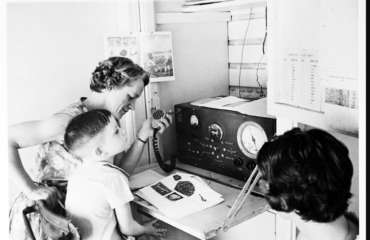Teaching literacy is a very controversial field, I think, because we all learn to read and write. We all have an opinion on how literacy should be taught.
It is not easy for adults who can read and write fluently to see things from the perspective of children.
When we started developing the ‘Early Literacy and Knowledge Skills’ (ELKS), the other researchers and I would talk about the responses we would expect from kids.
When we would go out into classrooms and pre-schools, the kids would tell us things we weren’t expecting.
‘With my PhD I want to propose a way for teachers to be more reflective in how they pick and choose standardised tasks and for what purposes.’
For example, we gave children a set of cards, each with a different letter combination. Some were real words, such as ‘boat’ and ‘you’, and some were non-words, like ‘bbb’ and ‘cskp’.
We wanted to find out which of the letter combinations children thought were words and which they thought weren’t, and why.
When piloting the task, we found that some children gave us good reasons for ‘mis-categorising’ some non-words as words.
For example, some children may think FET is a word because it can be pronounced as ‘feet’ and ‘kood’ is a word because it can be pronounced as ‘could’.
But with my PhD, I was more interested in how it could be used by teachers in the classroom. This challenges what we think a word is.
So these children considered a ‘word’ to be something that has meaning in spoken language, even if it may not be spelled conventionally.
Standardised testing is often used to rank children so the school system can sort them into groups.
I looked at what types of responses students give to questions, and how they behave when answering questions.

When examining children’s responses to ELKS, I found interesting patterns in the ways some students responded. For example, one child could see a word and break it down into individual sounds.
They would look at ‘cat’ and spell it out: C-A-T.
Another child might look at the whole word and realises it means ‘cat’.
Two students who have the same score might have reached it in very different ways.
I’m interested in how teachers can use these observations to inform their teaching. Teachers don’t have a lot of time.
Some see standardised tests as separate from their teaching. They do it because they’re required to do it, not because they find the information useful.
At the same time, there’s a tendency for the school system to rely on test results because they think they are objective and reliable.
Often the system doesn’t place a lot of value in what teachers see. The use of standardised testing is growing in Australia.
With the huge amount of resources that are being put into NAPLAN it is unsurprising that we want to maximise what we can use its results for, like monitoring our country’s education system and using them to inform teaching.
‘It is very difficult for NAPLAN to provide very rich information about individual students.’
I have reservations about whether we can use NAPLAN to serve both of these purposes. There is always a tension between a group focus and an individual focus in assessment.
It is very difficult for NAPLAN to provide very rich information about individual students.
With my PhD I wanted to propose a way for teachers to be more reflective in how they pick and choose standardised tasks and for what purposes. Rather than trying to use the results from a single test for many different purposes, it might be better to create different kinds of tests for different purposes.
I also hope that what I’m doing can show people who develop assessments how there can be different interpretations.
After finishing my PhD I got a job at Victoria University’s Victoria Institute. I’m currently researching many different projects.
One looks at ways to engage students in Years 9 and 10 in high schools in Melbourne’s west and another looks at what mainstream schools can learn from alternative schools about social inclusion and social justice.
I’m also planning a book that brings together researchers to look at how we can improve assessment for teaching purposes.
Esther Chan’s PhD is titled: “Young Learners: An exploration of the notion ‘by different paths to common outcomes’ in early literacy assessment.”
*My PhD is an irregular series in which The Citizen speaks with recent Melbourne University PhD graduates.


